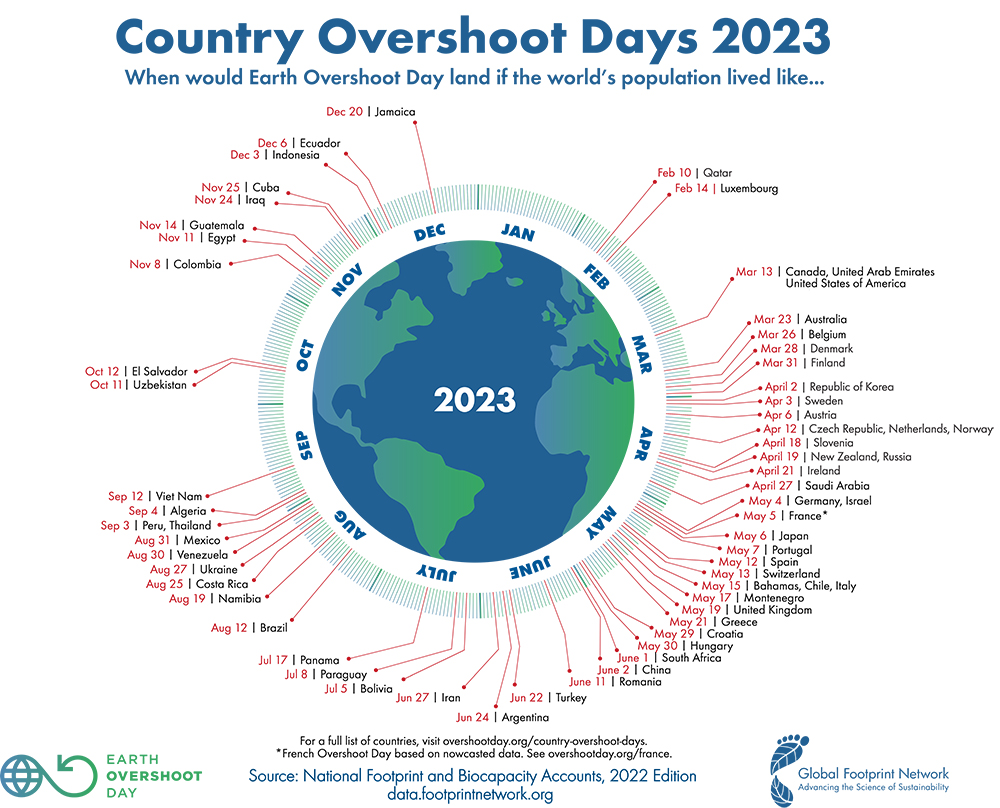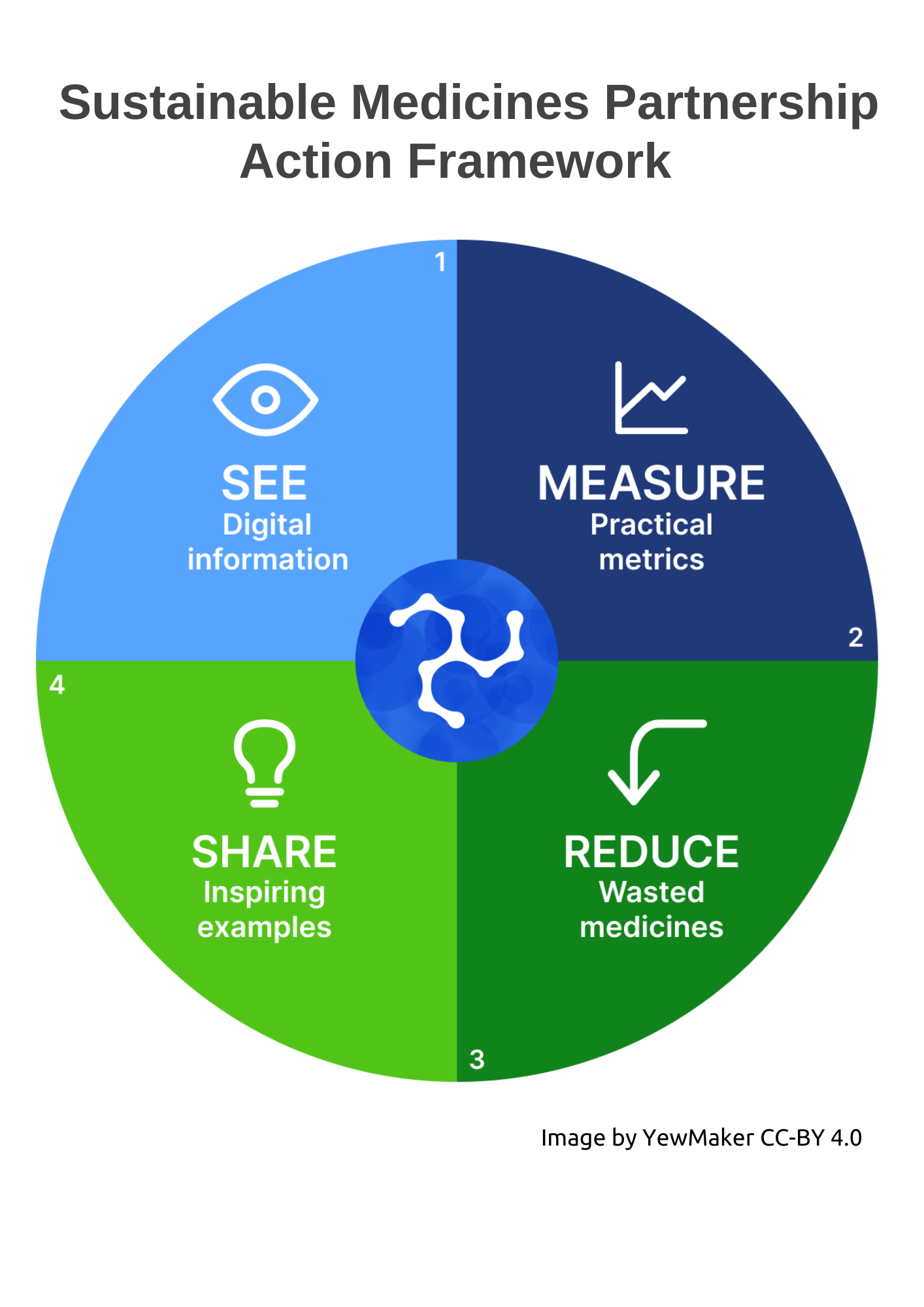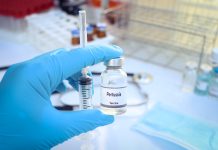Dr Nazneen Rahman, Founder and CEO of YewMaker and Sustainable Medicines Partnership (SMP) Director describes how tackling wasted medicines is crucial to achieving sustainable healthcare
The NHS is responsible for an estimated 4-5% of England’s carbon footprint and has committed to become net zero by 2045. “Net zero” refers to achieving a balance between the amount of greenhouse gases emitted into the atmosphere and the amount removed from it. It is an important, challenging, ambitious goal, but it is a milestone not the end of our journey to a sustainable, low-carbon future.
This is because achieving a balance of emissions does not address the underlying problem that humans are over-consuming and depleting Earth’s resources at an alarming and ever-increasing rate. Achieving net zero focuses activity on commendable solutions such as clean energy sources and carbon capture technologies. But these are not enough to address the climate crisis.
We need to consume less. We need to waste less. We need to do more with less. We must change our mindsets and our systems to be more careful and purposeful with Earth’s resources.
How bad is our current consumption?
Earth Overshoot Day starkly measures our excessive consumption. It marks the date when humanity’s demand for ecological resources in a given year exceeds what Earth can regenerate in that year. In 2023, the global Overshoot Day is August 2nd. In 1973, just fifty years ago, it was December 3rd.
Unsurprisingly, there is wide variation in country-level Overshoot Days. We have already passed the 2023 UK Overshoot Day, which was May 19th. We would need 2.7 Earths to support humanity if everyone on the planet lived as we do in the UK.
Clearly we need to change, and a priority focus should be to stop wasting resources.

Wasted resources in healthcare
It is well recognised that wasted healthcare resources present a major challenge for national and global health systems. According to a 2017 study, up to 20% of health spending in OECD countries could be better utilised.
A 2019 study revealed wasteful spending in the US health system amounts to over $760 billion annually, representing nearly 25% of total healthcare expenditure.
The medicine supply chain is a significant contributor to wasted healthcare resources and is our focus at YewMaker and the Sustainable Medicines Partnership (SMP).
Medicines are wasted for many reasons as I described in a previous blog. Two strategies SMP are prioritising to tackle wasted medicines are 1) reducing medicines that are made but not used, and 2) reducing medicines that are prescribed but not needed:
Reducing medicines made but not used
Any medicine that is manufactured but not used should be considered wasted medicine. It is not possible to eliminate this waste entirely as some excess is required to ensure stable supply. However, there are substantial opportunities to reduce wasted medicines, throughout the supply chain, through improved visibility and inventory management.
One example is the inventory held by pharmaceutical manufacturers, which has been increasing in recent years and varies greatly between manufacturers.
This rise in inventory has occurred at the same time as increasing medicine shortages, suggesting insufficient inventory is not the primary reason for scarcity, rather we need the right inventory in the right locations.
The impact of this one cause of wasted medicines is substantial, resulting in approximately $12.5 billion of medicines being written off last year across 28 pharmaceutical companies whose DIO (days of inventory outstanding) was evaluated by SMP collaborator, nVentic.
Reducing medicines prescribed but not needed When a person takes a medicine they do not need, it is potentially harmful for them and a waste of that medicine. This becomes an increasing issue as more medicines are prescribed. The percentage of people receiving prescriptions increased by 65% between 1999 and 2012, and increasing proportions are receiving multiple medicines.
Unnecessary prescriptions are a substantial problem in many countries, particularly for medicines like antibiotics and painkillers. Overprescription contributes to clinical harms, spiralling costs, and wasted resources. It is estimated 10% of NHS primary care prescriptions are not needed and unnecessary medicines contribute to the 6.5% of hospital admissions caused by adverse drug reactions.
Taking action – Sustainable Medicines Partnership
The root causes of wasted medicines are complex and holistic solutions are needed to tackle them. The Sustainable Medicines Partnership is an action collaborative of 48 diverse partners working together to reduce wasted medicines, to make healthcare more sustainable and equitable.

SMP is executing a four-year programme aligned to our See-Measure-Reduce-Share action framework. We are bringing awareness and visibility to the problems (See), developing practical metrics to measure current practices and to drive and monitor change (Measure), developing and piloting reduction strategies, with particular focus on overproduction and overprescription (Reduce), and sharing innovations through events, showcases, and publications (Share).
If you are interested in this work please contact us on info@yewmaker.com.

This work is licensed under Creative Commons Attribution-NonCommercial-NoDerivatives 4.0 International.











